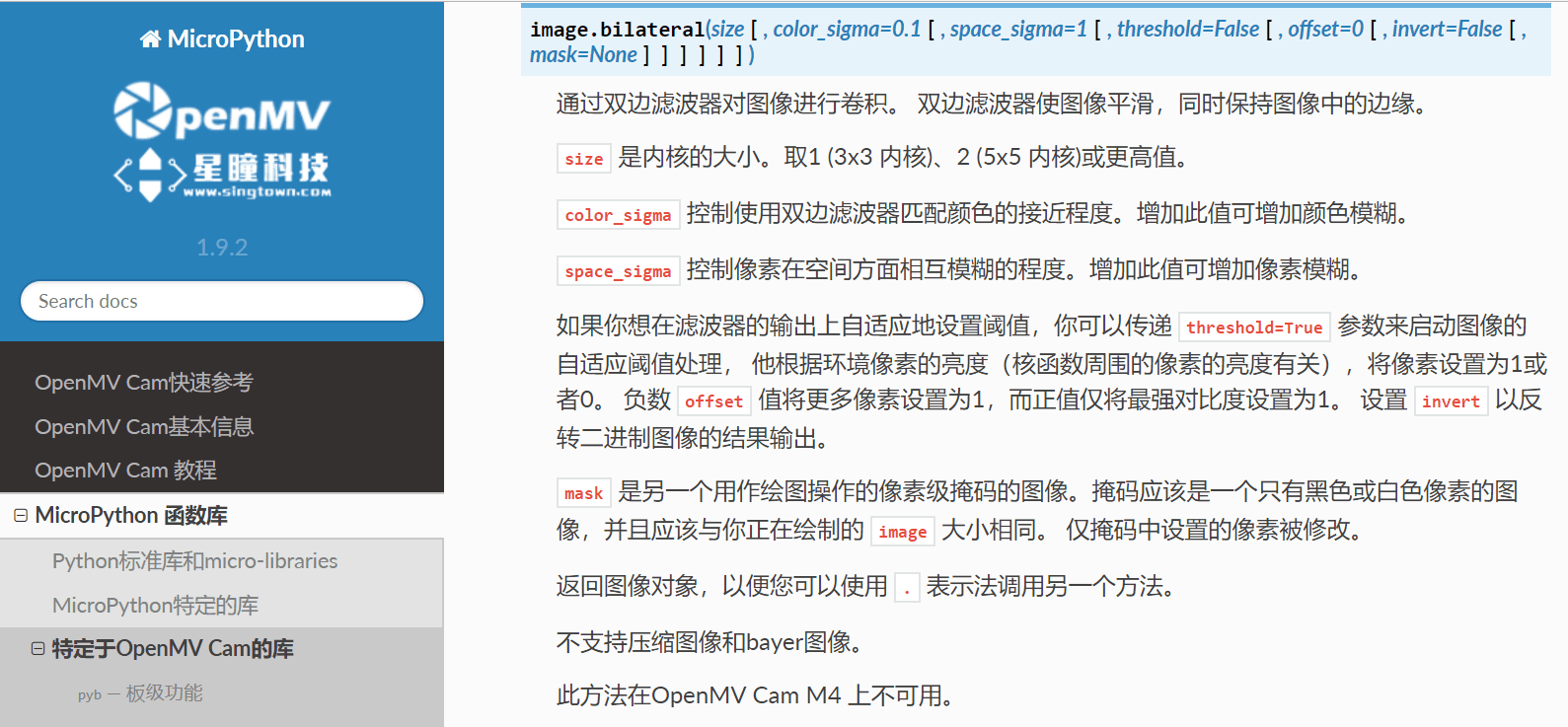例程讲解-03-grayscale_bilateral_filter灰度双边滤波
# 双边滤波例程
# 此示例显示了在灰度图像上使用双边滤波。
import sensor, image, time
sensor.reset() # Initialize the camera sensor.
sensor.set_pixformat(sensor.GRAYSCALE) # or sensor.RGB565
sensor.set_framesize(sensor.QQVGA) # or sensor.QVGA (or others)
sensor.skip_frames(time = 2000) # Let new settings take affect.
clock = time.clock() # Tracks FPS.
while(True):
clock.tick() # Track elapsed milliseconds between snapshots().
img = sensor.snapshot() # Take a picture and return the image.
# color_sigma controls how close color wise pixels have to be to each other to be
# blured togheter. A smaller value means they have to be closer.
# A larger value is less strict.
# space_sigma controls how close space wise pixels have to be to each other to be
# blured togheter. A smaller value means they have to be closer.
# A larger value is less strict.
# Run the kernel on every pixel of the image.
img.bilateral(3, color_sigma=0.1, space_sigma=1)
# Note that the bilateral filter can introduce image defects if you set
# color_sigma/space_sigma to aggresively. Increase the sigma values until
# the defects go away if you see them.
print(clock.fps()) # Note: Your OpenMV Cam runs about half as fast while
# connected to your computer. The FPS should increase once disconnected.
